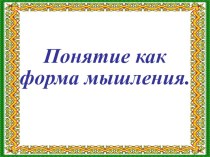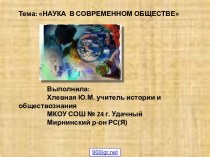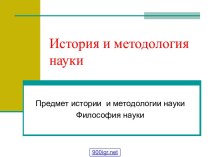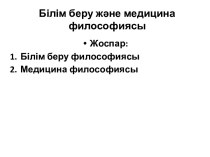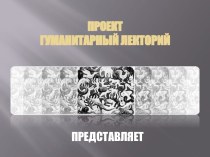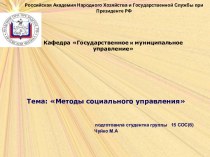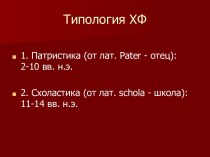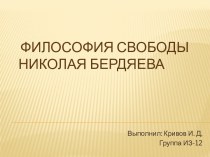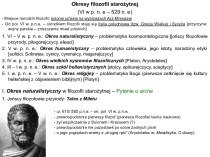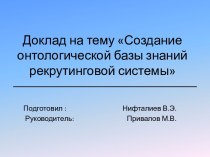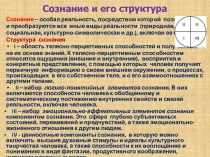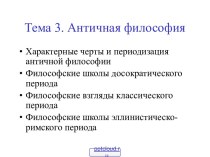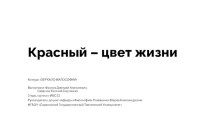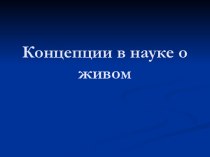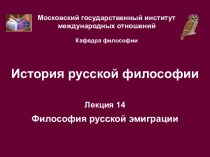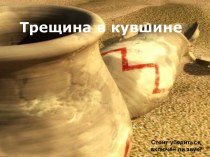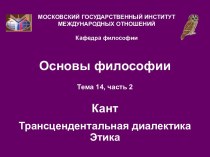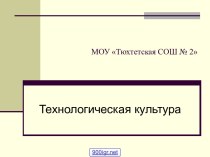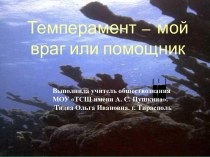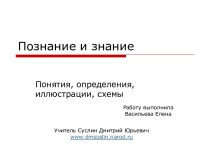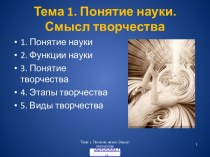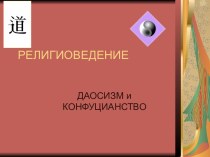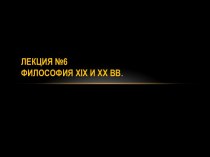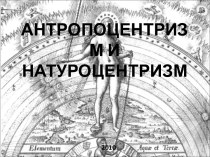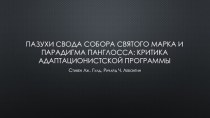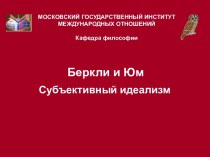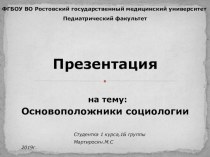- Главная
- Разное
- Бизнес и предпринимательство
- Образование
- Развлечения
- Государство
- Спорт
- Графика
- Культурология
- Еда и кулинария
- Лингвистика
- Религиоведение
- Черчение
- Физкультура
- ИЗО
- Психология
- Социология
- Английский язык
- Астрономия
- Алгебра
- Биология
- География
- Геометрия
- Детские презентации
- Информатика
- История
- Литература
- Маркетинг
- Математика
- Медицина
- Менеджмент
- Музыка
- МХК
- Немецкий язык
- ОБЖ
- Обществознание
- Окружающий мир
- Педагогика
- Русский язык
- Технология
- Физика
- Философия
- Химия
- Шаблоны, картинки для презентаций
- Экология
- Экономика
- Юриспруденция
Что такое findslide.org?
FindSlide.org - это сайт презентаций, докладов, шаблонов в формате PowerPoint.
Обратная связь
Email: Нажмите что бы посмотреть
Презентация на тему China’s Scientific Tradition and the Great Inertia
Содержание
- 2. OutlineThe definition of scienceScientific elements in Chinese
- 3. OutlineThe definition of scienceScientific elements in Chinese
- 4. The Definition of ScienceWhat is “science”?Latin origin:
- 5. The Definition of ScienceBegins as an extension
- 6. The Definition of ScienceDissolubity (divisibility)Superposability
- 7. The Definition of ScienceA scientist transcends the
- 8. Galileo Gililei (1564-1642)Theory of inertiaEach of his
- 9. Isaac Newton (1642-1727)Found a precise mathematical use
- 10. OutlineThe definition of scienceScientific elements in Chinese
- 11. Scientific Elements in Chinese TraditionJoseph NeedhamScience and Civilisation in China
- 12. Scientific Elements in Chinese Tradition
- 13. Scientific Elements in Chinese Tradition
- 14. Scientific Elements in Chinese TraditionChina’s scientific
- 15. Scientific Elements in Chinese TraditionQuantitative Scienceconcerned
- 16. Scientific Elements in Chinese TraditionQualitative Scienceyin-yang,
- 17. Scientific Elements in Chinese TraditionAstronomyThe earliest
- 18. Scientific Elements in Chinese Tradition
- 19. Scientific Elements in Chinese TraditionThe Chinese
- 20. Scientific Elements in Chinese TraditionMathematicsgave birth
- 21. Scientific Elements in Chinese TraditionMathematics3.14 64/625
- 22. Scientific Elements in Chinese TraditionMedicineMedical Book
- 23. Scientific Elements in Chinese Tradition2000 year old exercises
- 24. Scientific Elements in Chinese Tradition
- 25. Scientific Elements in Chinese TraditionSir Francis
- 26. Scientific Elements in Chinese TraditionThe Four InventionsCompassGun powderPaperPrinting
- 27. Scientific Elements in Chinese Tradition
- 28. Scientific Elements in Chinese TraditionZheng He’s Seven Voyages1405-1433
- 29. Scientific Elements in Chinese Tradition
- 30. Scientific Elements in Chinese TraditionPyrotechnology
- 31. Scientific Elements in Chinese Tradition
- 32. Scientific Elements in Chinese Tradition
- 33. Scientific Elements in Chinese Tradition
- 34. Scientific Elements in Chinese TraditionThe Gutenberg Bible, ca.1455
- 35. Scientific Elements in Chinese TraditionSeismograph
- 36. OutlineThe definition of scienceScientific elements in Chinese
- 37. China’s Failure to Achieve a “Scientific Revolution”Why,
- 38. China’s Failure to Achieve a “Scientific Revolution”Scientia contemplativavs.scientia activa et operativa
- 39. China’s Failure to Achieve a “Scientific Revolution”Cultural factorsInstitutional factorsPhilosophical factorsMethodological factorsOther factors
- 40. China’s Failure to Achieve a “Scientific Revolution”Cultural
- 41. China’s Failure to Achieve a “Scientific Revolution”Cultural
- 42. China’s Failure to Achieve a “Scientific Revolution” Institutional FactorsThe Civil Service Examination
- 43. China’s Failure to Achieve a “Scientific Revolution”Philosophical
- 44. China’s Failure to Achieve a “Scientific Revolution”Philosophical
- 45. China’s Failure to Achieve a “Scientific Revolution”Methodological FactorsMethods of inquiryCriteria of truth
- 46. China’s Failure to Achieve a “Scientific Revolution”CERN:
- 47. China’s Failure to Achieve a “Scientific Revolution”
- 48. China’s Failure to Achieve a “Scientific Revolution”
- 49. China’s Failure to Achieve a “Scientific Revolution”Methodological FactorsMethods of inquiryCriteria of truth
- 50. China’s Failure to Achieve a “Scientific Revolution”The
- 51. China’s Failure to Achieve a “Scientific Revolution”Other Factorsabsence of private scientific groupsetc. etc.
- 52. OutlineThe definition of scienceScientific elements in Chinese
- 53. Concluding RemarksChinese claimed no necessity of science.
- 54. China’s Scientific Tradition and the Great InertiaSan-pao
- 55. Скачать презентацию
- 56. Похожие презентации
OutlineThe definition of scienceScientific elements in Chinese traditionFactors contributing to China’s failure to achieve a “Scientific Revolution”Concluding Remarks
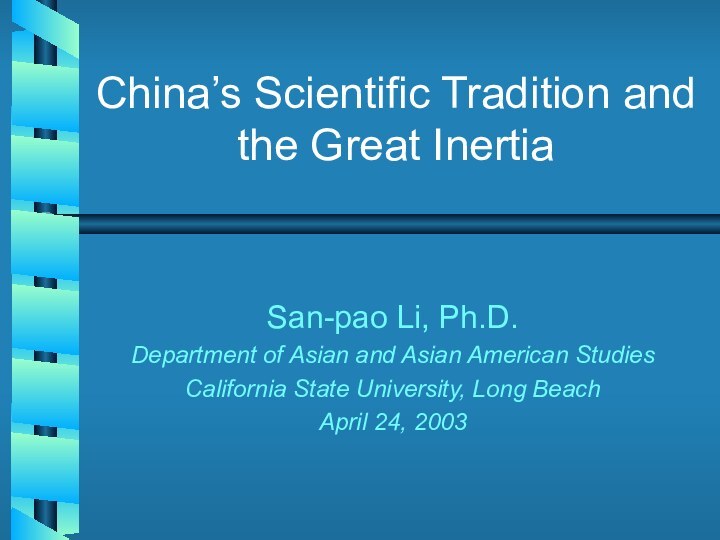
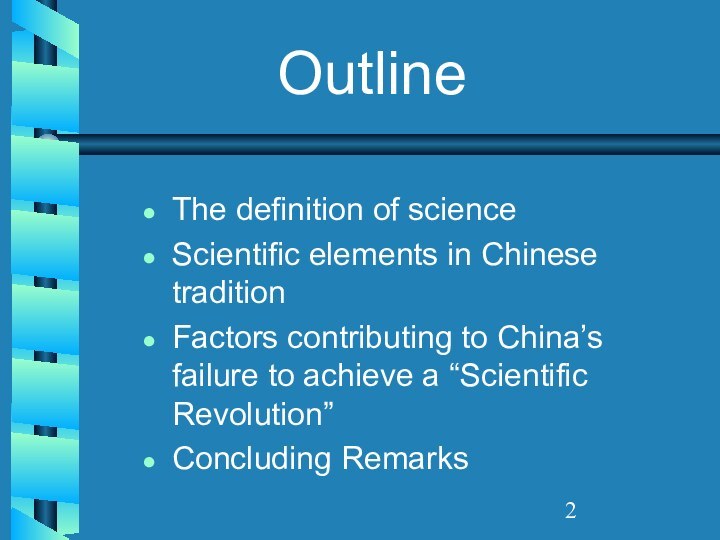




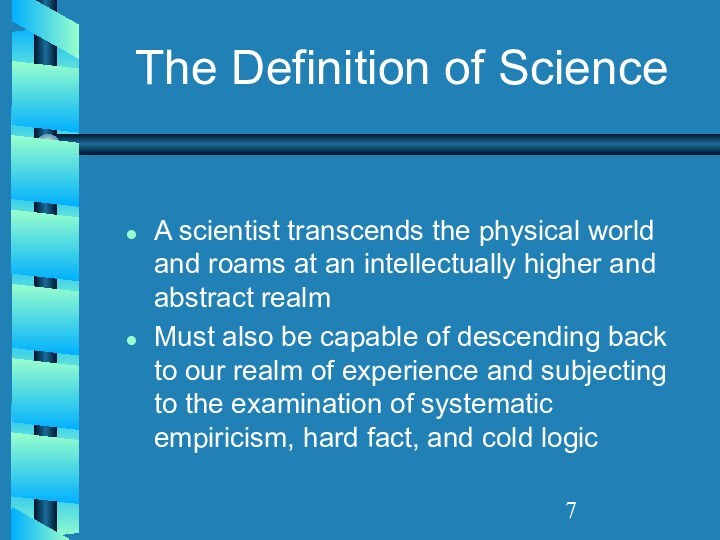


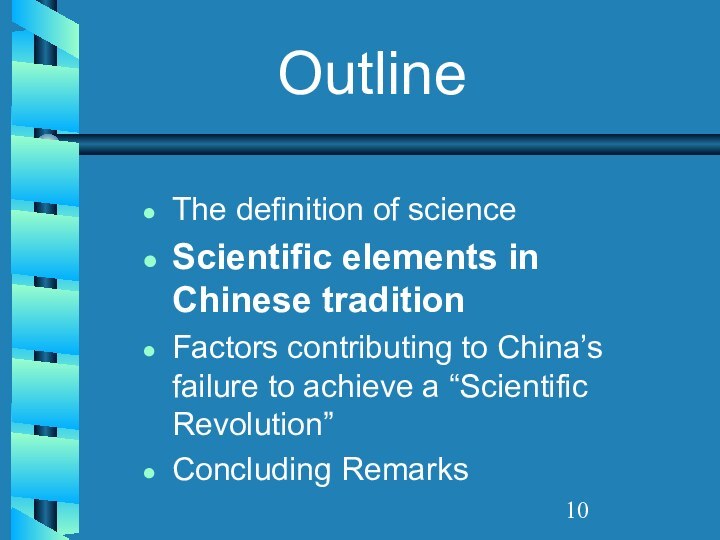
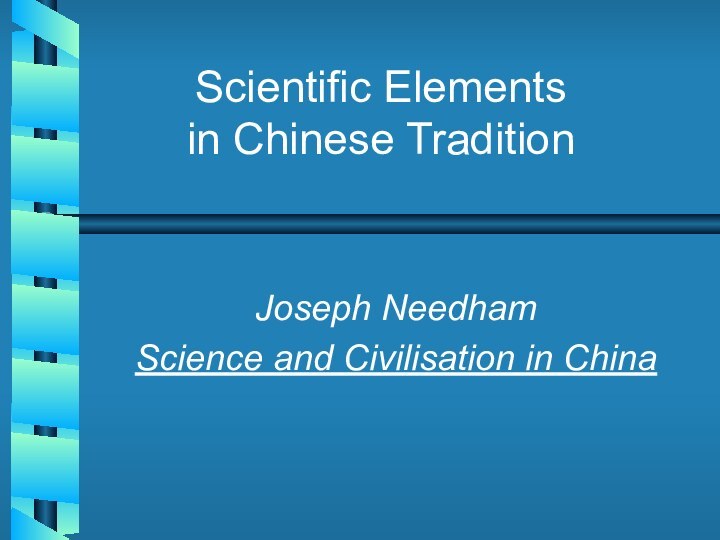


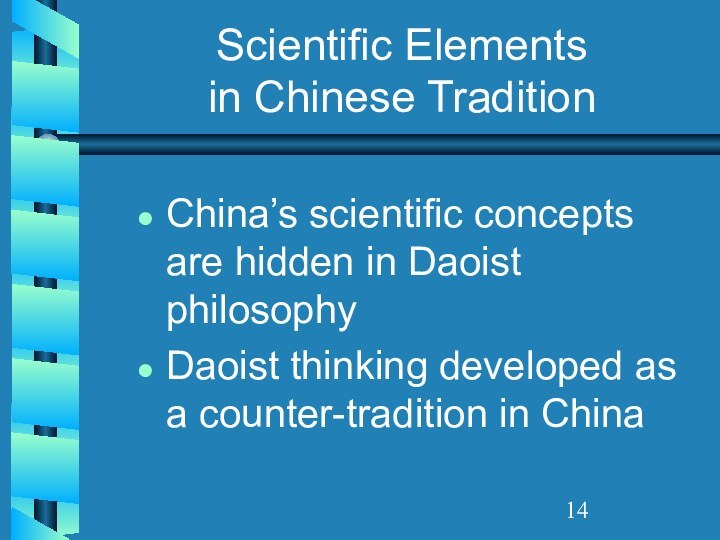



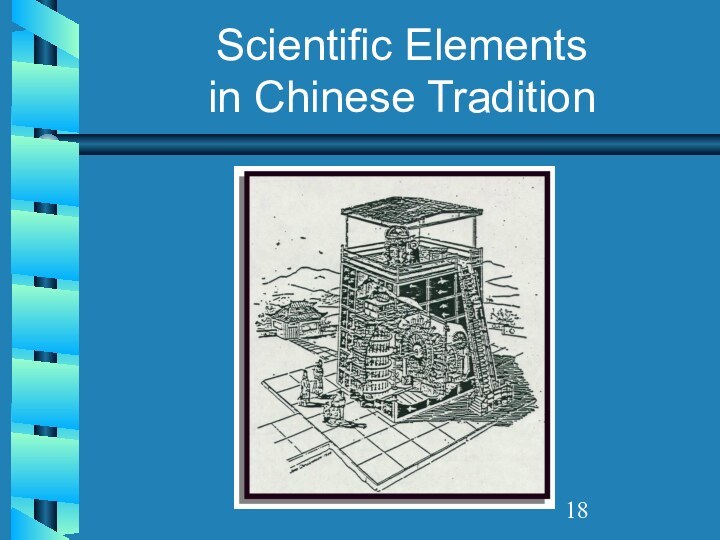



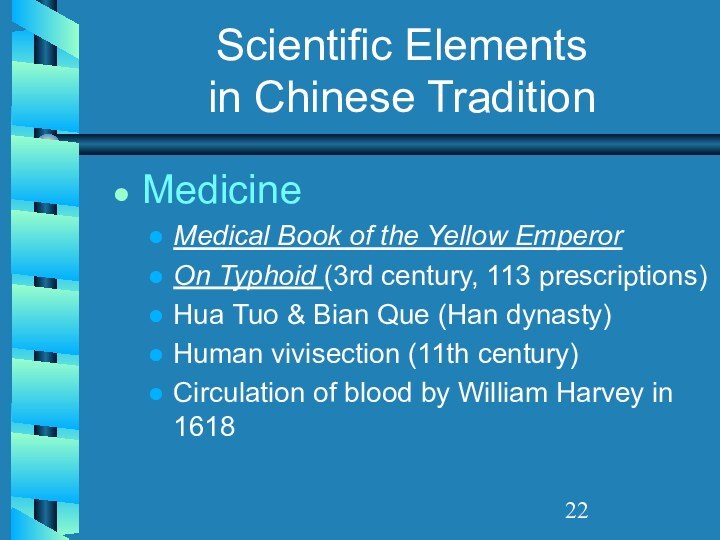



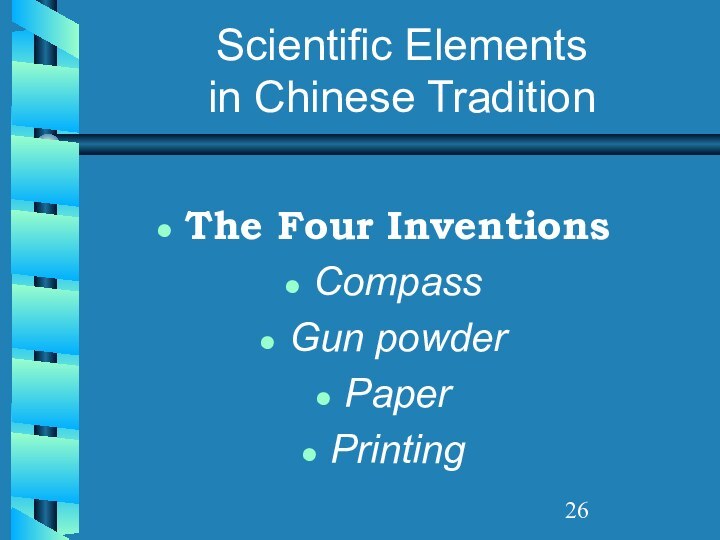


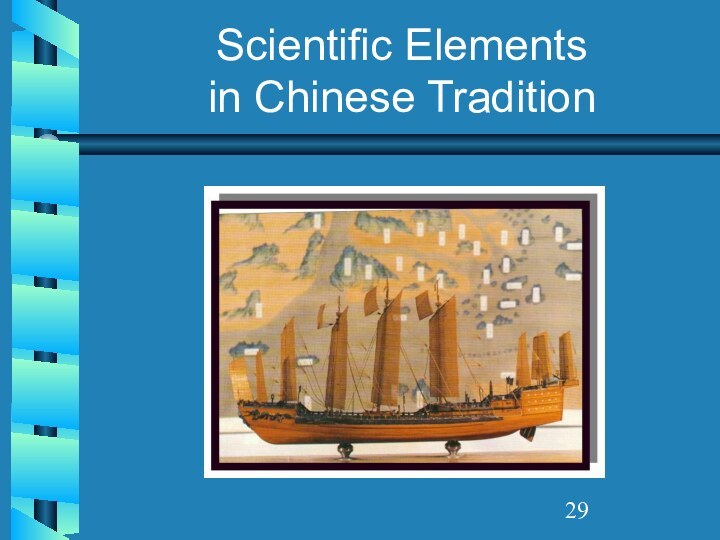



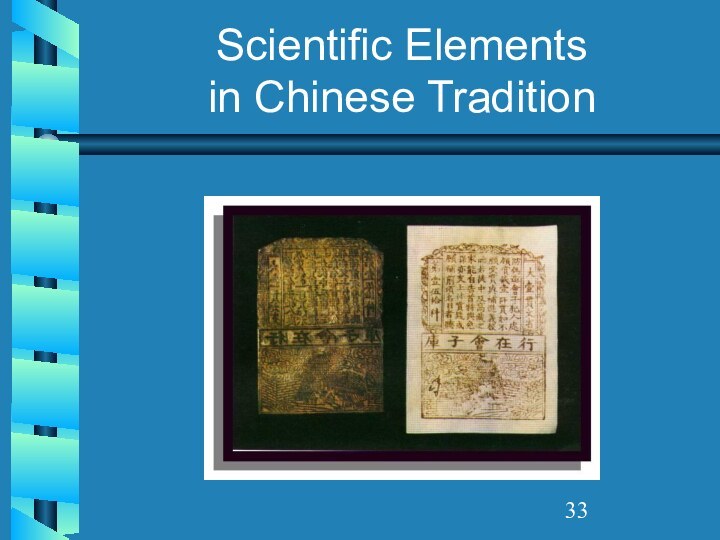



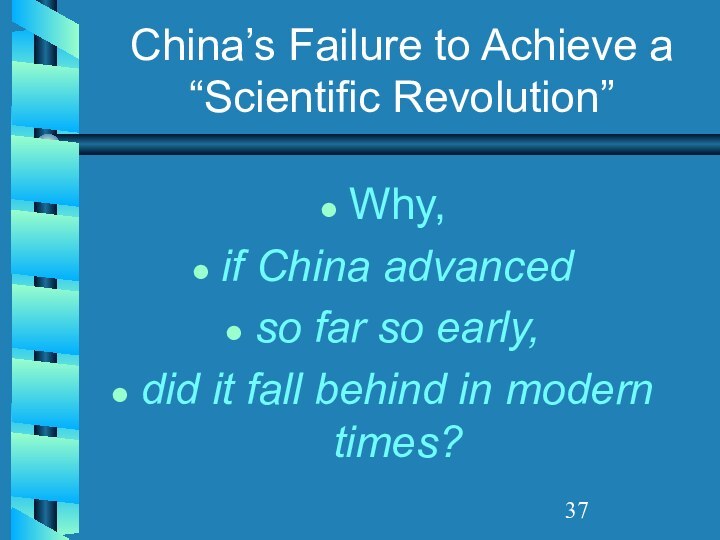




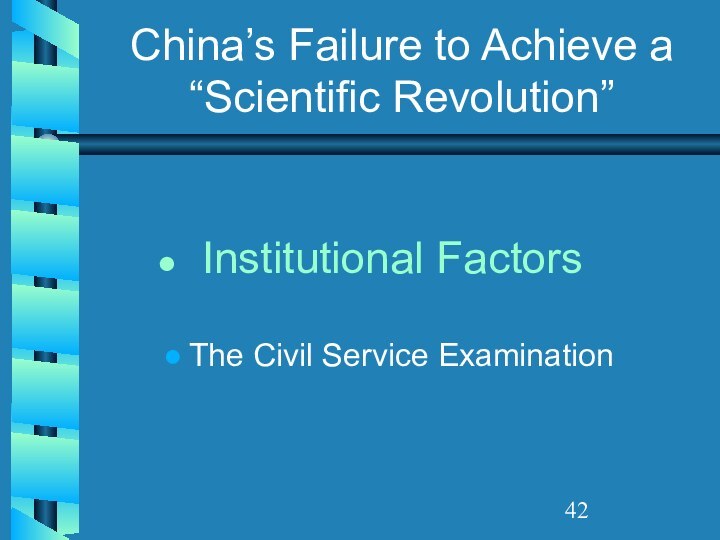

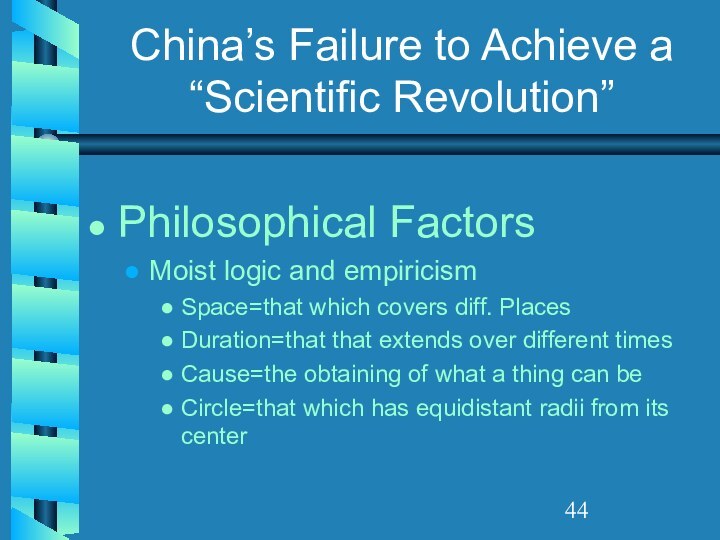






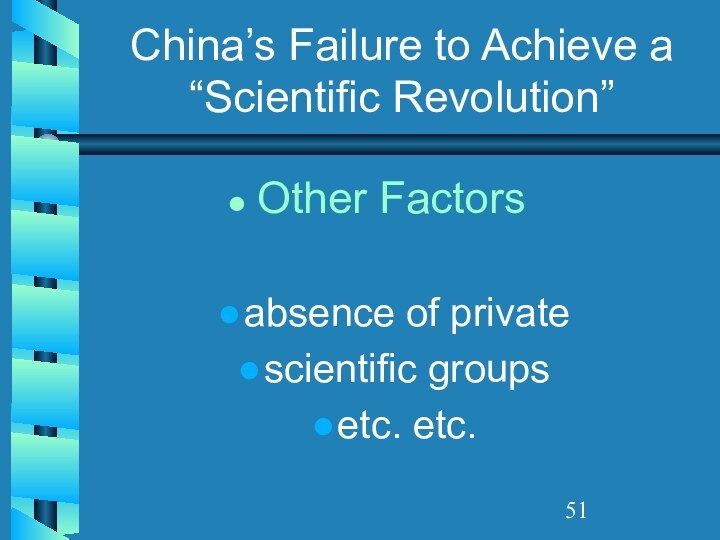




Слайд 2
Outline
The definition of science
Scientific elements in Chinese tradition
Factors
contributing to China’s failure to achieve a “Scientific Revolution”
Remarks
Слайд 3
Outline
The definition of science
Scientific elements in Chinese tradition
Factors
contributing to China’s failure to achieve a “Scientific Revolution”
Concluding
Remarks
Слайд 4
The Definition of Science
What is “science”?
Latin origin: scientia
(knowledge)
Scientific = knowledge-making
More than a body of rationally gained
knowledge…..An activity directed at altering and increasing that very body of knowledge…..
Слайд 5
The Definition of Science
Begins as an extension of
common sense
Seeks a higher, rational unity, a deeper understanding
which is unknown to common senseEstablishes a conceptual order in the chaos of perceptual experience
Never-ending search for invariants
Слайд 7
The Definition of Science
A scientist transcends the physical
world and roams at an intellectually higher and abstract
realmMust also be capable of descending back to our realm of experience and subjecting to the examination of systematic empiricism, hard fact, and cold logic
Слайд 8
Galileo Gililei
(1564-1642)
Theory of inertia
Each of his manipulations was
guided by thought, each of his thought by experimental evidence
Слайд 9
Isaac Newton
(1642-1727)
Found a precise mathematical use for concepts
like force, mass, and inertia
Gave new meanings to the
old terms such as space, time, and motion in an equally mathematical language
Слайд 10
Outline
The definition of science
Scientific elements in Chinese tradition
Factors
contributing to China’s failure to achieve a “Scientific Revolution”
Concluding
Remarks
Слайд 14
Scientific Elements
in Chinese Tradition
China’s scientific concepts are
hidden in Daoist philosophy
Daoist thinking developed as a counter-tradition
in China
Слайд 15
Scientific Elements
in Chinese Tradition
Quantitative Science
concerned primarily with
numbers and its application to physical reality
concrete and empirically
provable
Слайд 16
Scientific Elements
in Chinese Tradition
Qualitative Science
yin-yang, the five
elements or dynamic forces and other verbal concepts
abstract but
powerfully rational
Слайд 17
Scientific Elements
in Chinese Tradition
Astronomy
The earliest record of
the motion of the five planets, A.D. 1-A.D.5
armillary sphere
(Han dynasty)Su Song’s astronomical clock
Слайд 19
Scientific Elements
in Chinese Tradition
The Chinese time
was not
a succesion of quantitatively equal and qualitatively indistinguishable units.
Слайд 20
Scientific Elements
in Chinese Tradition
Mathematics
gave birth to the
European “Scientific Revolution” in the 17th-century
The Nine Chapters (Han
dynasty)The Calculating Methods (Han)
Слайд 21
Scientific Elements
in Chinese Tradition
Mathematics
3.14 64/625 < pi
>3.14 169/625
in A.D. 263
considered as “insignificant art of literary
composition”it cultivates little, if at all, one’s moral character
Слайд 22
Scientific Elements
in Chinese Tradition
Medicine
Medical Book of the
Yellow Emperor
On Typhoid (3rd century, 113 prescriptions)
Hua Tuo &
Bian Que (Han dynasty)Human vivisection (11th century)
Circulation of blood by William Harvey in 1618
Слайд 25
Scientific Elements
in Chinese Tradition
Sir Francis Bacon (1561-1626)
“Printing,
gunpowder and the compass: these three inventions have already
changed the face of the entire world and the condition of things. The first is concerned with learning, the second with warfare and the third with navigation.The changes in these three areas will give rise to innumerable discoveries in other areas and no matter what empire, religion or constellation or human affairs; no human influence will be as great as that of the discovery of these mechanisms.
Слайд 36
Outline
The definition of science
Scientific elements in Chinese tradition
Factors
contributing to China’s failure to achieve a “Scientific Revolution”
Concluding
Remarks
Слайд 37
China’s Failure to Achieve a “Scientific Revolution”
Why,
if
China advanced
so far so early,
did it fall
behind in modern times?
Слайд 38
China’s Failure to Achieve a “Scientific Revolution”
Scientia contemplativa
vs.
scientia
activa et operativa
Слайд 39
China’s Failure to Achieve a “Scientific Revolution”
Cultural factors
Institutional
factors
Philosophical factors
Methodological factors
Other factors
Слайд 40
China’s Failure to Achieve a “Scientific Revolution”
Cultural factors
Sinocentric
view
the backview mirror
order and harmony….. Avoid disorder
and innovationbureaucracy
Слайд 41
China’s Failure to Achieve a “Scientific Revolution”
Cultural Factors
It
is the Chinese culture itself that absorbed most of
the people’s energy and inhibited their inquisitive spirit.
Слайд 42
China’s Failure to Achieve a “Scientific Revolution”
Institutional
Factors
The Civil Service Examination
Слайд 43
China’s Failure to Achieve a “Scientific Revolution”
Philosophical Factors
Daoist
love of nature
True knowledge does not lead to the
quest for a first cause or for an irreducible atom….. But to the self-transformation whereby man becomes one with the cosmos.Aesthetic vs. scientific
Слайд 44
China’s Failure to Achieve a “Scientific Revolution”
Philosophical Factors
Moist
logic and empiricism
Space=that which covers diff. Places
Duration=that that extends
over different timesCause=the obtaining of what a thing can be
Circle=that which has equidistant radii from its center
Слайд 45
China’s Failure to Achieve a “Scientific Revolution”
Methodological Factors
Methods
of inquiry
Criteria of truth
Слайд 46
China’s Failure to Achieve a “Scientific Revolution”
CERN: particle
collisions create tiny fireballs 400 million times as hot
as the sun, spraying out new matter.
Слайд 49
China’s Failure to Achieve a “Scientific Revolution”
Methodological Factors
Methods
of inquiry
Criteria of truth
Слайд 50
China’s Failure to Achieve a “Scientific Revolution”
The Chinese
method of inquiry was a synthetic one….
Its criterion of
truth was its compatibility with the transcendental principles of the immutable one.The Western…basically an analytical one and its criterion of truth was its precision, exactness, and verifiability.
Слайд 51
China’s Failure to Achieve a “Scientific Revolution”
Other Factors
absence
of private
scientific groups
etc. etc.
Слайд 52
Outline
The definition of science
Scientific elements in Chinese tradition
Factors
contributing to China’s failure to achieve a “Scientific Revolution”
Concluding
Remarks
Слайд 54
China’s Scientific Tradition and the Great Inertia
San-pao Li,
Ph.D.
Department of Asian and Asian American Studies
California State University,
Long BeachApril 24, 2003
